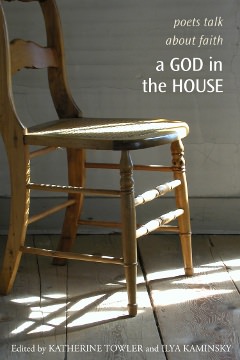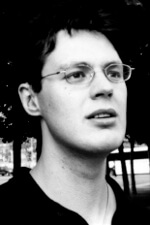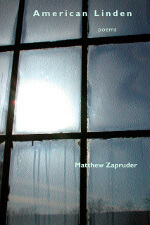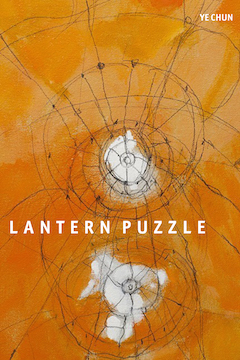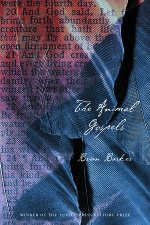A God in the House: Poets Talk About Faith
by Ilya Kaminsky & Katherine Towler (editors)
$36.95
Tupelo Press has done a great service in bringing the work of editors Ilya Kaminksy and Katherine Towler to fruition … these collected pieces are not so much essays about religion or even faith as they are confessions of wonder, attempts to detail a path to mystery through words, through silence, in stories of artistic purpose or of beliefs found through poverty and desperation. They are of indispensable use to writers, both as tools to understand more deeply some of the great voices of our time, and as triggers for thought and action in our own work and minds. They offer refreshment, challenge, sublimation, and ecstasy. — Jeremy Bass, Pleiades
Also available in ebook through Amazon, Barnes and Noble, iTunes and Kobo.
Format: Paperback, Cloth, ePub, Kindle, iPad
Out of stock
Tupelo Press has done a great service in bringing the work of editors Ilya Kaminksy and Katherine Towler to fruition … these collected pieces are not so much essays about religion or even faith as they are confessions of wonder, attempts to detail a path to mystery through words, through silence, in stories of artistic purpose or of beliefs found through poverty and desperation. They are of indispensable use to writers, both as tools to understand more deeply some of the great voices of our time, and as triggers for thought and action in our own work and minds. They offer refreshment, challenge, sublimation, and ecstasy.
— Jeremy Bass, Pleiades
What unifies this book, and what makes it a vital and indispensable collection for any serious poetry enthusiast, is a belief that our creative work is as necessary for our spiritual health as a foundation in some spiritual foundation (even a fervent skepticism) can be for our creative practice. Either way, this book offers much for those who despair during those long, terrible silences between the making of our own poems.
— Thom Dawkins, Los Angeles Review
This anthology gives courage to seekers for whom religion is just the beginning.
— Philip Metras, Cleveland Plain Dealer
A God in the House is not about a particular poet-worship any more than it is about God-worship. It’s too human for that… Still, each interview always returns the discussion to writing. Waldrep explains how faith relaxes the process for him: ‘I almost never know where a given poem is going — in the act of composition — more than a line or two ahead of where I am, if that. One has to trust the source in these moments.’ I like the vast unknowing of his approach, the absolute confidence that the words will come.
— Lauren Camp, Which Silk Shirt
Nineteen prominent American poets discuss their spiritual lives, and how their faith speaks to them in writing. There is much to be learnt in these personal journeys that name the world anew not just through the word, but through higher meanings of truth. The subject isn’t common, it is important. Contributors include Jane Hirshfield, Grace Paley, Gerald Stern, Joy Harjo, and … Eleanor Wilner.
— Greta Aart, Cerise Press
[A] collection we’re confident poets and people of faith will keep by their bedside for years of re-reading…Burgeoning with insight and incandescent prose, A God in the House is the rare book in which a celebration of religious diversity blossoms into unity: a chorus of voices for life, for awe, and for the sheer delight of language.
Poetry Magazine‘s February 2012 issue contains a lengthy excerpt. You can read it here.
A Tupelo Press Lineage Series Book
Editors Ilya Kaminsky and Katherine Towler have gathered conversations with nineteen of America’s leading poets, reflecting upon their diverse experiences with spirituality and the craft of writing. Bringing together poets who are Christian, Buddhist, Jewish, Muslim, Pagan, Native American, Wiccan, agnostic, and otherwise, this book offers frank and thoughtful consideration of themes too often polarized and politicized in our society. Participants include Li-Young Lee, Jane Hirshfield, Carolyn Forché, Gerald Stern, Christian Wiman, Joy Harjo, and Gregory Orr, and others, all wrestling with difficult questions of human existence and the sources of art.
The intimate relationship between poetry and prayer, explored anew in this wide-ranging collection of interviews, animates some of our most vital writing. These poets are wonderful guides to the endlessly changing terrain of spiritual practice….
—Christopher Merrill, author of Things of the Hidden God: Journey to the Holy Mountain
An incandescent collection of essays, superbly edited, radiant with wisdom, demonstrating the great truth that all poetry, all art, all human endeavor finds its fulfillment in service to something higher than itself…. Christian, Jewish, Muslim, Buddhist, unaffiliated, non-religious: the contributors… unite in awe before the mystery of being. This is a noble and life-giving book.
— Philip Zaleski, editor of the annual Best Spiritual Writing volumes and co-author of Prayer: A History
Kazim Ali
“… in the Muslim philosophical tradition we don’t have an ordained priesthood. We have scholars, and it’s the people who are the most learned who become spiritual leaders.”
“Prayer is a form of panic, because in prayer you don’t really think you’re going to be answered. You don’t really pray for your situation to change, you pray to be able to handle your situation. It’s not the world, it’s you that you want to change.”
Jericho Brown
“The poem mirrors the life of the believer, and mirrors the process of prayer — of having a conversation with the supernatural. That’s why poetry is so different from prose, because it’s infused with doubt. At the moment of a line break, even if it’s for a millisecond, you’re thrust into doubt.”
Annie Finch
“As a folk religion that does not hide the fact, witchcraft holds in common with many other religions the basic idea that whatever you believe in ‘out there’ is not as important, in the end, as finding a path motivated simply by human kindness, and being fully present in your own ritual actions, which creates a place for the sacred.”
Carolyn Forché
“For me, holiness used to mean that which resides in the exemplary being of Christ or the apostles or martyrs. I now have suffered an intense dispersal of this concept, and the world is at once fallen and holy, both at the same time.”
Fanny Howe
“I wanted the world to be both magical and full of meaning. I was always in a state of shock or awe at existing. It was inevitable I would end up Catholic, and a lover of all religious literature and acts from around the world.”
“The liturgy helps me to recognize the world and time. While the Eucharist is totally mad in terms of human reason, the ritual has another kind of intelligence, one that manages to be both earthy and cosmological.”
Jane Hirshfield
“The model of intensive training and return to regular life, its fidelity to the ordinary, is something that I appreciated in Zen. I liked that the ‘spiritual’ isn’t something allocated to specialists, but is regarded as a thing more like water — plain, free-flowing, available, already ubiquitous.”
“Because we are human and have the awareness of exile-consciousness in us, we also look from the perimeter and from the imagined ends, and we consider what comes before and after our individual fates.”
Julius Lester
“Faith is something that one practices at the very moment in your life when you really don’t believe anything, and you’re in the worst kind of despair.”
“I think I understand less about God than I ever did. I like the concept in Judaism of chatat, which is translated as sin and means ‘to miss the mark.’ It’s accepted that of course you’re going to miss the mark. What’s important is taking responsibility for having missed the mark.”
Gerald Stern
“Mine was not faith in anything divine unless the salvation of an oppressed people or oppressed peoples can be called divine.”
G. C. Waldrep
“We draw existence from non-existence. We make something out of nothing. Scientists tell us this is impossible, but artists do it every day. Abracadabra. It may or may not make a difference, but something has changed, something is truly new.”
“The defining aspects of my childhood were race and class in a small Southern town. Religion, such as it was, was a middle-class cultural ornament. I was raised United Methodist. Frankly, this didn’t mean much. In that milieu you had to go somewhere on Sunday, or people would talk.”

